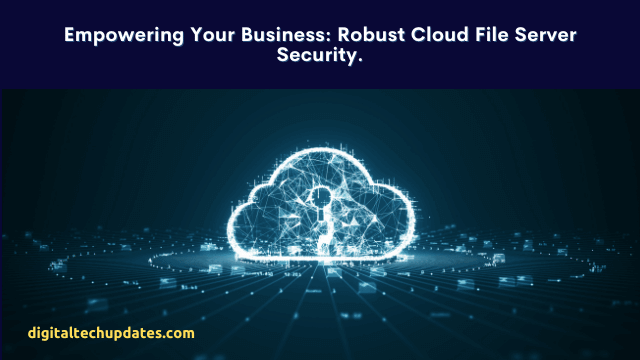Imagine this scenario: your business depends on the cloud for effortless access to vital data, enabling your team to collaborate seamlessly, regardless of their physical location. Your clients rely on you to protect their private data, demonstrating confidence in your capacity to keep it secure.
Now, why should you be worried about this? There are two compelling reasons. Firstly, the digital age has ushered in a relentless and ever-evolving landscape of cyber threats. These threats are not only persistent but also highly sophisticated, making vigilance and preparedness essential. Secondly, the reputation, reliability, and competitiveness of your business are intrinsically tied to your capacity to safeguard sensitive data. It goes beyond technology; it’s about preserving the vitality of your organization and ensuring uninterrupted operations in a digital realm fraught with challenges.
Multi-Factor Authentication (MFA): Strengthening Access Control
MFA, is a foundational element in cloud security. Unlike traditional password-only security, MFA demands multiple layers of verification from users before granting access to resources, such as an online file server. This added layer of security significantly reduces the risk of unauthorized access. The advantages of incorporating MFA into your online file server environment are substantial. Most notably, it greatly decreases the likelihood of unauthorized access. By requiring additional verification methods, such as fingerprint scans or security tokens, MFA minimizes the risk of a security breach, even if passwords are compromised.
Implementing MFA in your cloud file server setup requires careful planning. Start by selecting the MFA method that aligns with your organization’s specific needs and user preferences. The configuration process involves adapting your cloud environment to support MFA, which may include enrolling users for biometric verification or providing them with hardware tokens. To overcome challenges like user resistance or technical issues, invest in targeted user training and select MFA solutions that strike the right balance between security and user-friendliness.
Data Encryption and Compliance: Safeguarding Your Business
Encryption serves as a formidable shield for your data within the cloud security realm. It effectively safeguards sensitive information in two key states: when it’s at rest (stored) and when it’s in transit (during transfer). When it comes to implementing data encryption on a web-based file server, it’s crucial to carefully select appropriate encryption algorithms and manage encryption keys securely. Regularly reviewing and updating encryption protocols is vital to staying ahead of emerging threats. Striking a balance between ensuring data accessibility and maintaining stringent security is key, making it crucial to tailor encryption strategies to your enterprise’s specific operational demands.
Continuous Monitoring and Threat Detection: Staying One Step Ahead
Identifying and stopping cyber threats requires a deep understanding of cutting-edge cybersecurity technology. Machine learning algorithms, designed to process and analyze huge amounts of data, play a key role in identifying patterns that may indicate a potential security breach. These algorithms continually refine their detection capabilities over time.
In addition to machine learning, security information and event management (SIEM) systems are instrumental in contemporary cybersecurity. They collect and analyze data from various IT sources, providing a comprehensive overview of your organization’s security status. By correlating data from networks, servers, and databases, SIEM systems can pinpoint anomalies such as unusual login attempts or unexpected data access, offering early warnings of potential breaches.
In the event of a security breach, a prompt and effective response is imperative. An incident response plan should outline immediate actions, including containment, threat eradication, system recovery, and a comprehensive investigation to understand the breach’s nature and scope. Following an incident, conducting a thorough review to identify lessons learned and implement preventative measures is necessary for strengthening your enterprise’s defenses against evolving threats. These measures will not only enhance your security but also your organization’s resilience in the face of challenges.
In Conclusion
Your commitment to safeguarding your online file server security isn’t a one-time effort but an ongoing dedication. As cyber threats advance in complexity, your adaptability and vigilance will be the linchpin of your success. Staying well-informed and proactive ensures that your business remains secure and resilient. Remember, your business’s security isn’t merely a necessity; it’s a testament to your unwavering commitment to protecting your invaluable assets and maintaining trust in an ever-evolving digital era.




